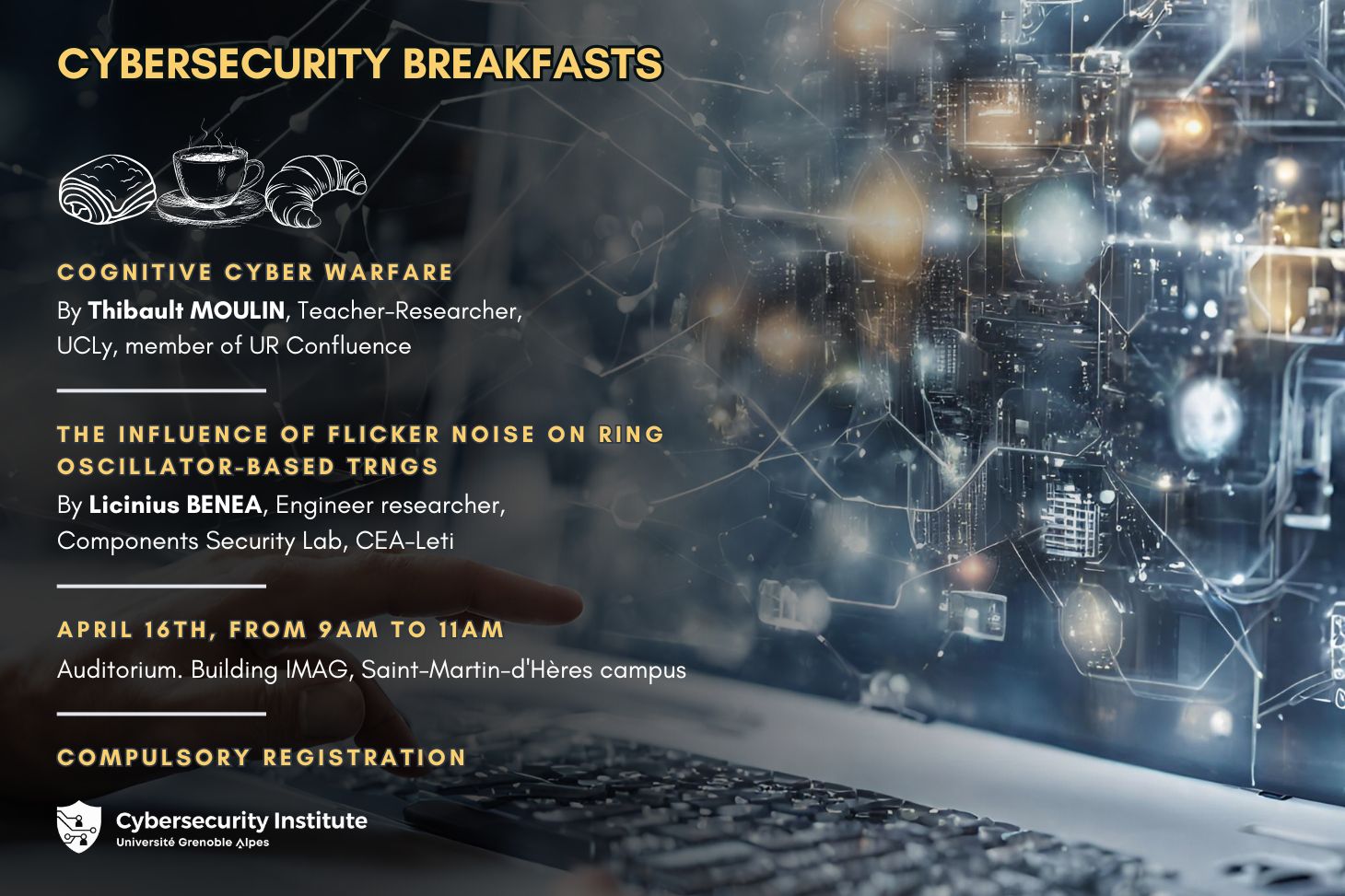We are delighted to invite you to a new cybersecurity breakfast, on Tuesday, April 16th 2024, in the IMAG auditorium from 9am to 11am.
What's on the agenda?
1. "The Cognitive Cyber Warfare," by Thibault Moulin, Researcher-Teacher, Catholic University of Lyon, member of the Confluence Research Dpt.
"In the future, the use of neuro-technologies (brain-machine interfaces and brain stimulation) could become widespread. While they were initially developed in a medical context to enable disabled individuals to move or communicate, they also present a clear interest in the military domain. Indeed, scientific progress shows that neural interfaces not only enable the remote control of machinery but also the development of modern detection systems or decision-making aids. The problem is that studies also reveal vulnerabilities: serious consequences could therefore result from hacking. Combat methods could thus undergo a metamorphosis, leading to a 'cognitive cyber warfare': a battlefield where opponents confront each other through intermediary devices and seek to hack the neural devices of the adversary in order to neutralize them. The purpose of this presentation is therefore to discuss the current state of the art and the future developments that are foreseeable, and then to present the rules that would be applicable in such situations."
Discover the video (in french)
2."The Influence of Flicker Noise on Ring Oscillator-Based TRNGs," by Licinius Benea, Research Engineer, Components Security Laboratory, CEA-Leti.
"Ring oscillators (RO) are often used in truly random number generators (TRNGs). The jitter of their clock signal, used as a source of randomness, comes from thermal and flicker noise. While the jitter from thermal noise is often identified as the main source of randomness, the jitter from flicker noise is not accounted for in models due to its autocorrelated nature, which complicates modeling. However, this noise contributes increasingly as technological nodes decrease. This presentation presents our recent work studying the influence of flicker noise on the entropy of an RO-based TRNG. The methodology is based on a phase noise emulator that integrates flicker noise, generating time series with jitter, thus allowing for obtaining the output of the TRNG (a series of random bits)."
Discover the video (in french)
Please note the following important information:
- Registration is compulsory. The registration link is at the bottom of the page.
- The language of the event will be French.
- Presentations will be recorded and published on the CyberSecurity Institute youtube channel.
